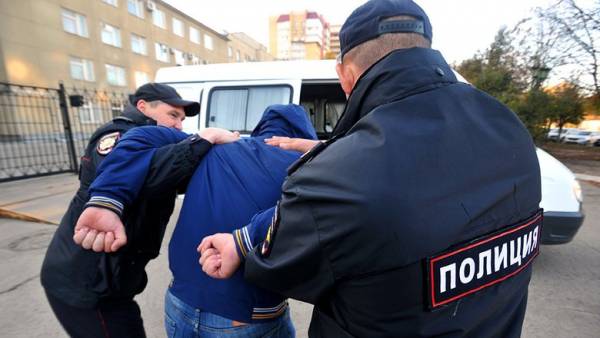
From the & nbsp; bill prepared by the government, amending & nbsp; legislation on the & nbsp; police which policemen are not & nbsp; responsible for the & nbsp; actions committed during & nbsp; execution, if they were carried out in the & nbsp; manner prescribed by law. & Nbsp; reported by TASS with & nbsp; a link to & nbsp; available at its disposal a draft of amendments, prepared by the profile committee of the State Duma.
In the original version of the bill, which passed the first reading, it was stated that “a police officer shall not be subject to prosecution for actions committed in the performance of duties entrusted to the police and in connection with the exercise of the rights granted to the police, if these actions were carried out on the grounds and in accordance with the procedure established (by law). “
In the & nbsp; new edition, this provision was removed from the & nbsp; bill.
The government submitted a bill expanding the powers of police officers to the & nbsp; State Duma in & nbsp; May 2020.
Anatoly Vyborny, a member of the State Duma Committee on & nbsp; Security and Anti-Corruption, told RBC that the & nbsp; preparation of amendments was related to & nbsp; emerging law enforcement practice. “ It's one thing when an employee feels over & nbsp; himself the sword of Damocles of the law that & nbsp; at & nbsp; at & nbsp; any moment he can be brought to & nbsp; responsibility for & nbsp; exceeding the limits of necessary self-defense, and & nbsp; quite another & nbsp; & mdash; when he & nbsp; knows that & nbsp; is protected by law. Imagine a situation & nbsp; & mdash; here he & nbsp; sees that & nbsp; the child is in & nbsp; the car, it is closed, the parents are gone, the windows are closed and & nbsp; hot. & nbsp; And, of course, he & nbsp; will have to take action to save the child. And & nbsp; today he & nbsp; does not & nbsp; understand how to act, starts calling the & nbsp; Ministry of Emergencies and & nbsp; wasting time & hellip; & raquo;, & nbsp; & mdash; He explained & nbsp;
The draft law also proposes to give police officers the right to cordon off or block the territory of residential buildings, buildings and & nbsp; other facilities by & nbsp; decision of the heads of the territorial departments of the Ministry of Internal Affairs. At the & nbsp; borders of the police cordon, it is proposed to allow inspection of both citizens and & nbsp; cars and & nbsp; the goods in & nbsp; If a person refuses & nbsp; examination, the police may not & nbsp; let him into & nbsp; territory or & nbsp; and & nbsp; and & nbsp; & nbsp; let him outside & nbsp; the perimeter of the cordon. These norms are kept in the & nbsp; bill.
Amendments to Article 15 of the Law “On Police”, which regulates the right of security officials to enter apartments, residential buildings, buildings, land plots and territories, are also being considered.
Now this article allows such penetration in the & nbsp; case, if you need to detain “ persons suspected of & nbsp; committing a crime ''. In the & nbsp; new edition, the police will be able to do this also in the & nbsp; case if there is a person in the & nbsp; room without procedural status who has committed a probable crime. & Nbsp; such a person will be able to indicate, in & nbsp; in particular, victims or eyewitnesses.
Georgy Tadtaev